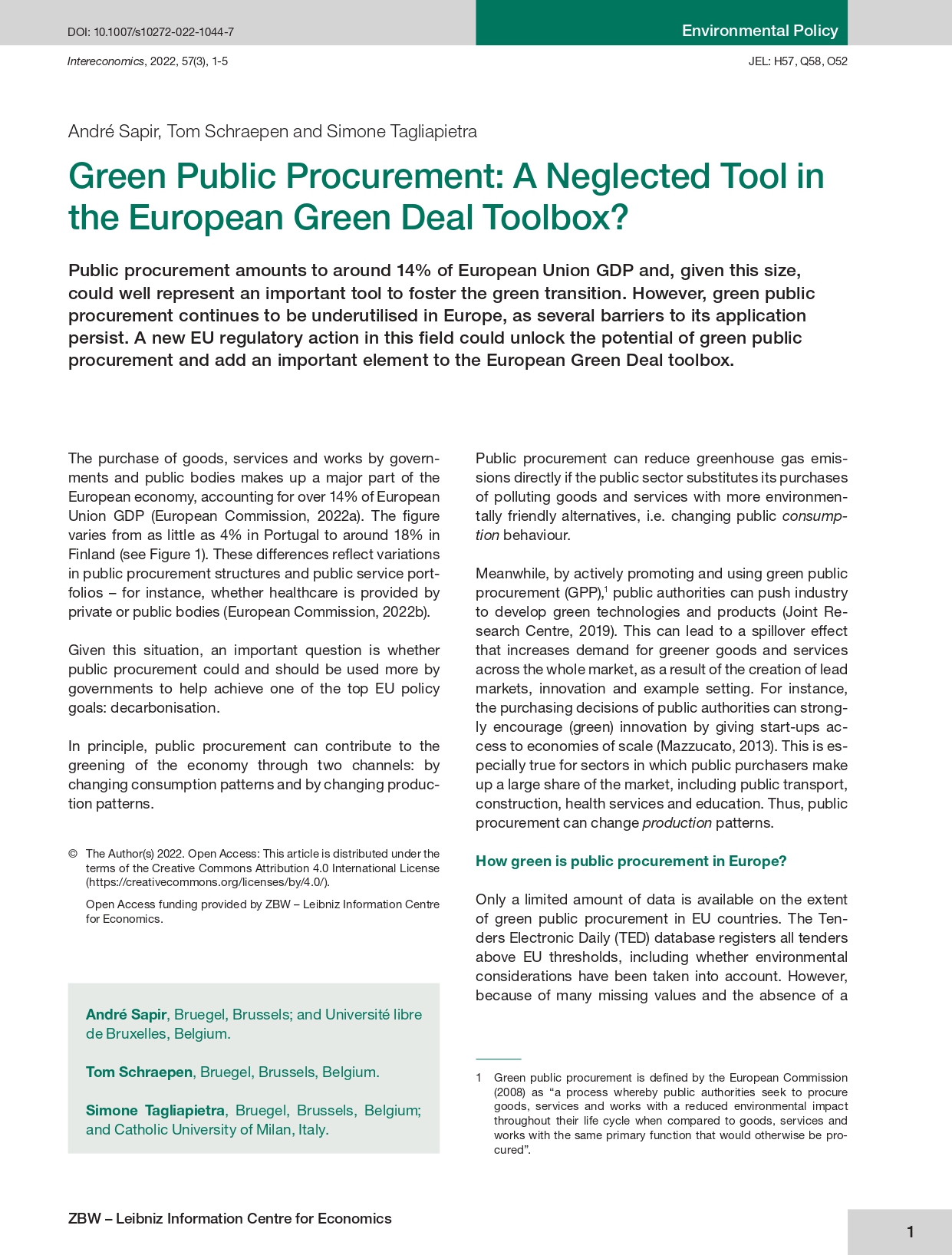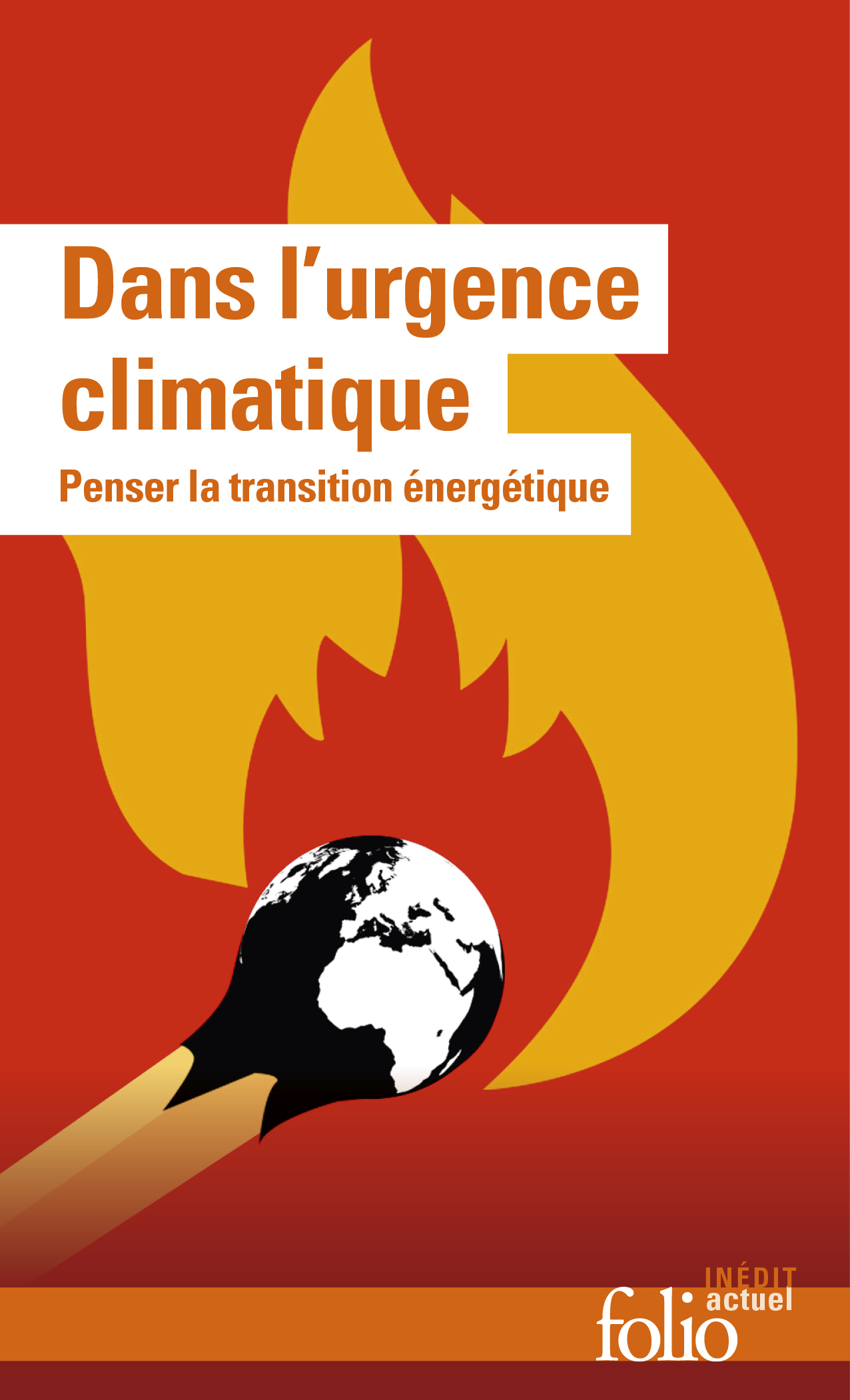Opinion
A green industrial policy for Europe
A ‘green industrial policy’ able to promote economic growth, job creation and environmental goals altogether will be fundamental to Europe’s climate change ambitions.
For more details on this subject, please refer to Bruegel Blueprint, “A green industrial policy for Europe“.
This opinion piece was published on Domani and el Economista.

The European Green Deal aims to make Europe the first climate-neutral continent by 2050. This is not going to be an easy journey. To be successful, the European Green Deal will have to foster major shifts in the European industrial structure, including transitions from fossil fuels to renewable energy and from combustion engine cars to electric cars. Shifting economies from brown to green would be a historic socio-economic transformation. Not by coincidence, this challenge is often referred to as an industrial revolution against a deadline. In this context of broad, paradigmatic, change for European industry, a ‘green industrial policy’ able to promote economic growth, job creation and environmental goals altogether will be fundamental to Europe’s climate change ambitions.
But there are limits to what the market and the state can each deliver. For a successful green industrial policy, mechanisms will be needed that make them work together efficiently. The design of public-private partnerships will make or break industrial policy efforts. The major transformative change demanded by climate change will also require the involvement of civil society more than in other areas of industrial policy. Green technologies, often still emerging, are complex and uncertain. Future uncertainty about climate and technology scenarios underlines the importance of self-discovery on the market, and industry-research collaboration.
Today, Europe is characterised by a multitude of green industrial policy initiatives, undertaken at regional, national and EU levels. These initiatives are generally not coordinated. This is a major issue, because significantly different green industrial policies in different EU countries fragment the EU single market and could disrupt the level playing field. A fragmented EU single market for green technologies prevents innovative European cleantech companies from scaling up in the way that their United States and Chinese competitors do on their domestic markets. It is thus vital to develop a solid regulatory framework accompanied by competition policy enforcement, ensuring access to a truly single, competitive EU market with common environmental standards.
Furthermore, European countries and companies would benefit greatly from joint coordinated actions in certain green technologies, so that they can exploit synergies and economies of scale. This can be achieved through European Alliances – already established since 2017 for batteries and since 2020 for clean hydrogen – aimed at fostering cross-European public-private collaboration. These Alliances are a valuable EU green industrial policy tool, and should be expanded, also to involve emerging and innovative industrial stakeholders alongside established industrial players.
To develop a successful green industrial policy, Europe also needs to be braver in innovation because the green revolution needs breakthrough innovation. This requires significant risk-taking by public institutions. To facilitate this, the innovation component of an EU green industrial policy should be viewed as a portfolio, in which certain initiatives will inevitably fail. A portfolio with no failures entails no risks, and a portfolio with no risks is unlikely to provide breakthroughs.
Finally, the reach of EU green industrial policy should extend beyond Europe’s borders. Europe produces less than 10% of global greenhouse gas emissions. To really make a difference in terms of climate protection, the European Green Deal has to go global. The EU can leverage its external development policy and turn it into a vehicle of global sustainability. Such an approach would provide a triple benefit. First, it would help meet the EU’s climate finance obligations and thus help to achieve the conditional emission-reduction commitments made by most developing countries under the Paris Agreement. Second, it would help EU industry to enter into new, rapidly growing markets. And third, it would help economic development in the EU’s partner countries, providing an invaluable foreign policy dividend for the EU.
If it builds on these principles, the EU has a real opportunity to create a workable green industrial policy that will help deliver on the ambitious objectives of the European Green Deal. Doing so is important for the European economy, as much as for the climate.
Republishing and referencing
Bruegel considers itself a public good and takes no institutional standpoint.
Due to copyright agreements we ask that you kindly email request to republish opinions that have appeared in print to [email protected].










